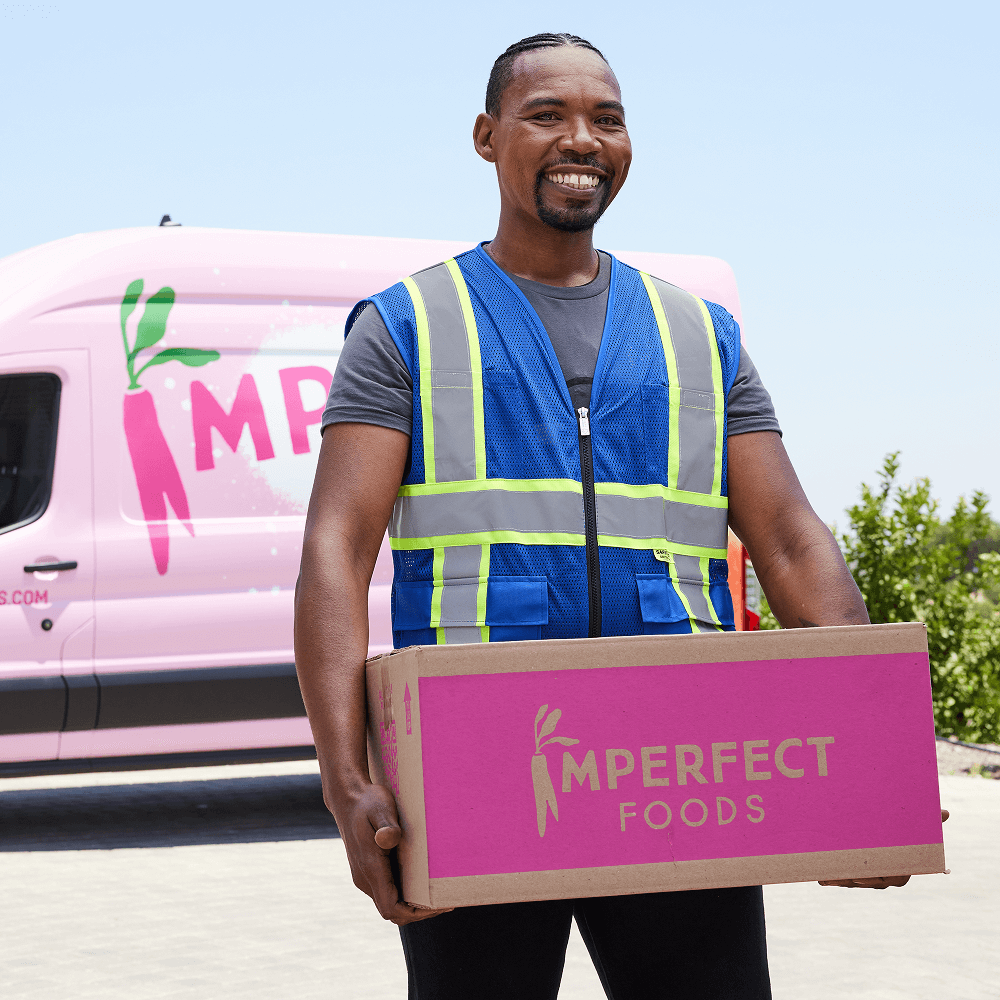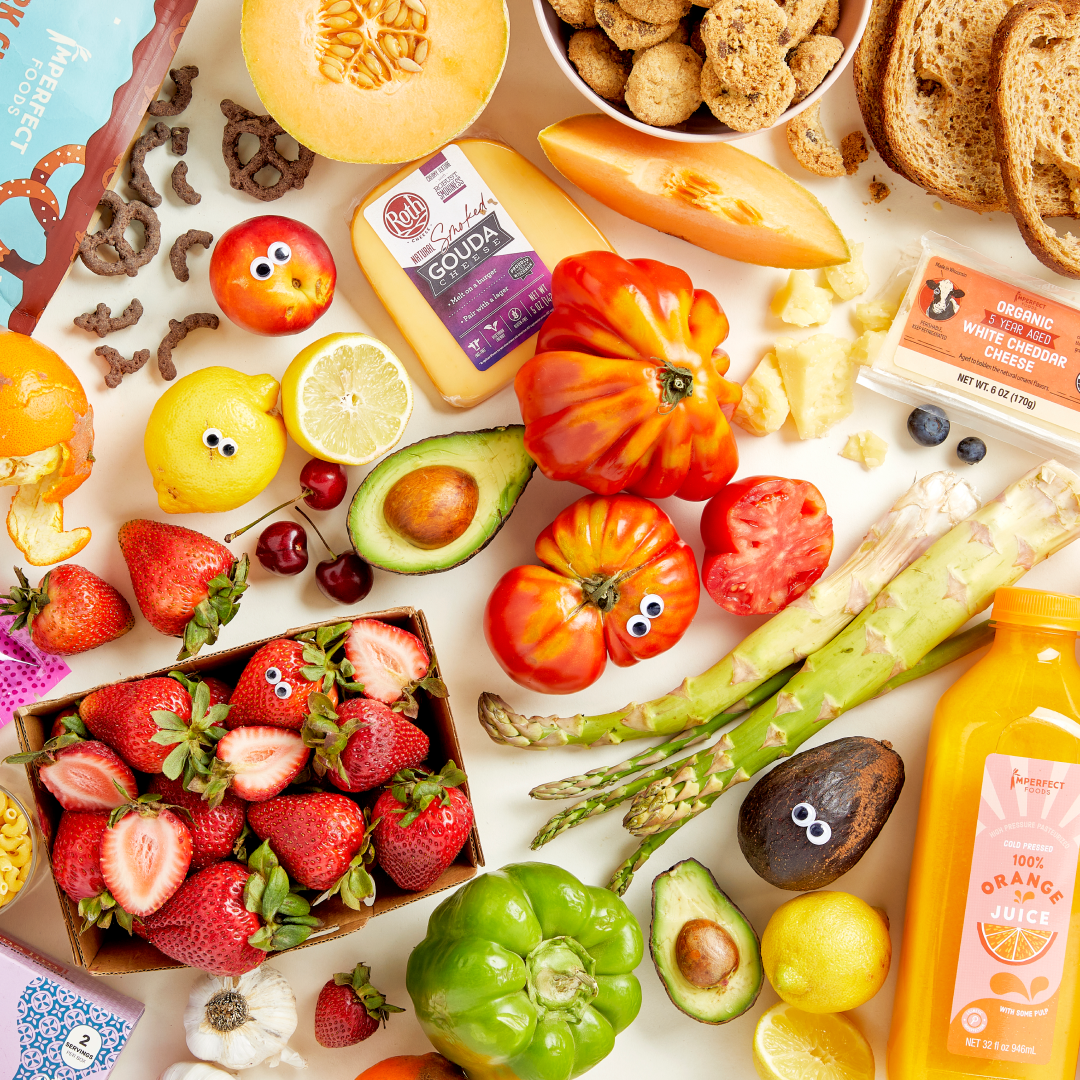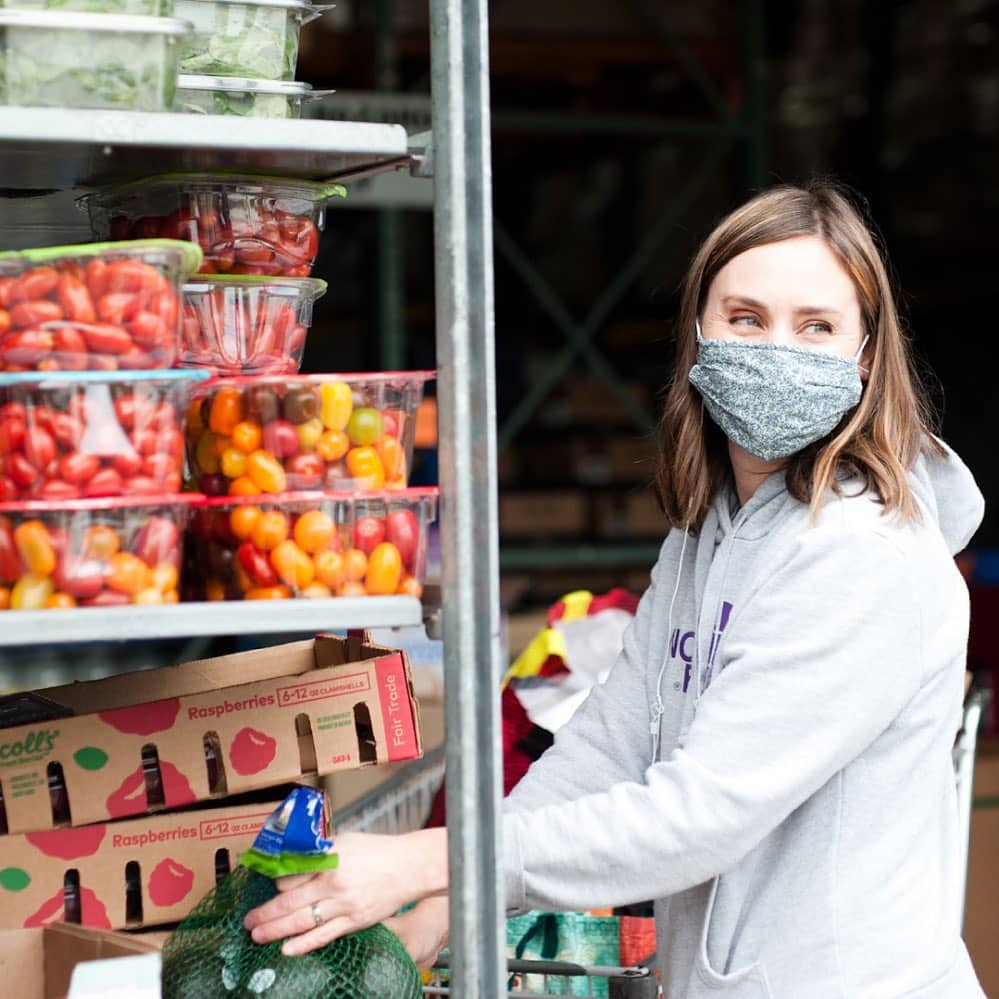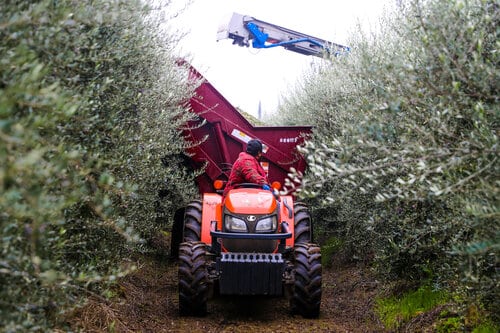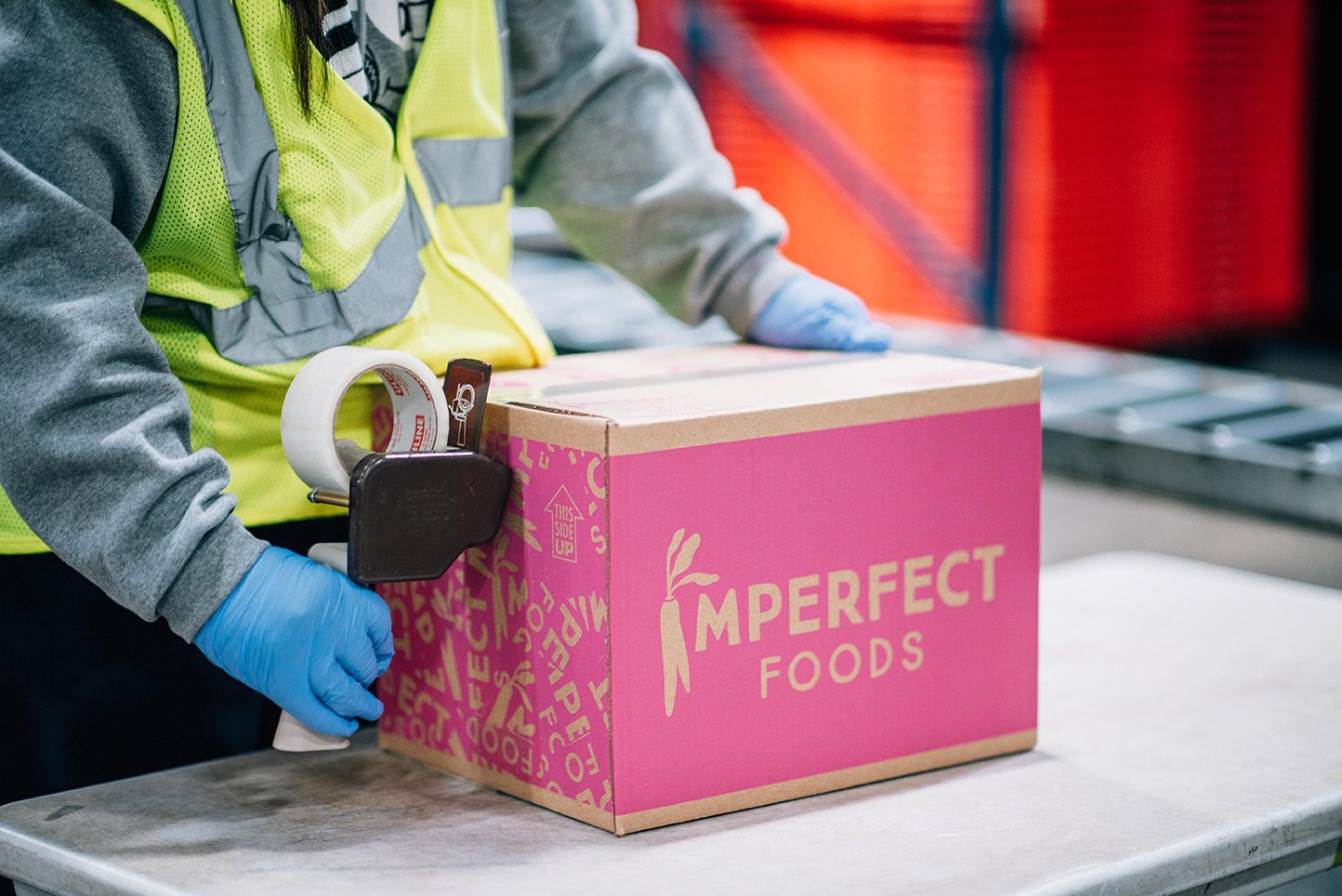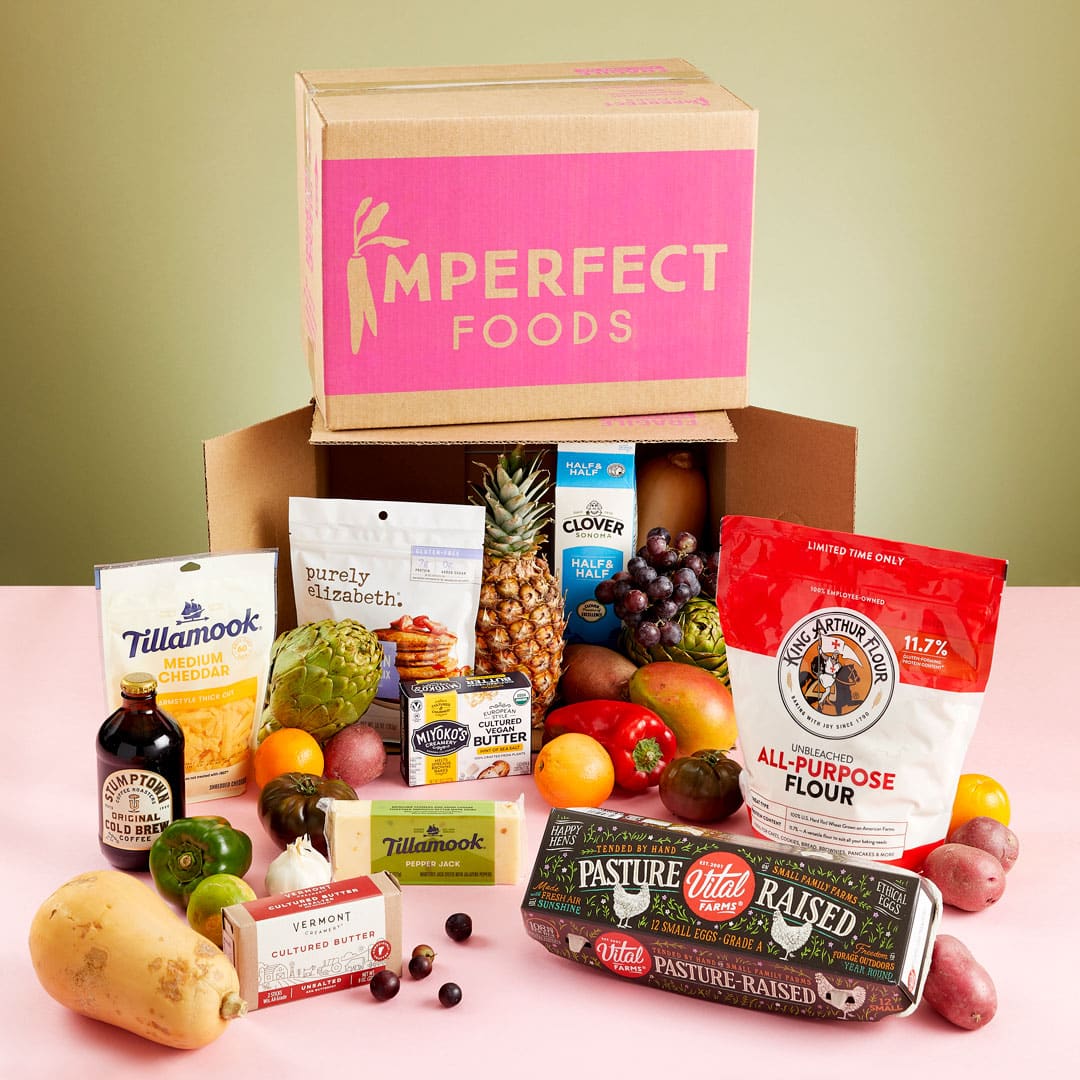From day 1 we’ve been committed to reducing food waste by creating a delightful marketplace for foods that could otherwise be wasted. It’s a common sense way to conserve our precious natural resources and also one of the most impactful ways for all of us to address climate change. Yet rescuing food from going to waste is just the start of how we can use our forks as a force for good. Here is how our mission to eliminate food waste and build a better food system comes to life every day at Imperfect Foods.
Intentional sourcing
At Imperfect Foods, we believe in “using the whole carrot.” By partnering with farmers and growers, we can create a less wasteful, and a more efficient, responsible, and compassionate supply chain from field to fork. As we grow, our impact grows too.
-
We address food waste at the source. Around half of the produce we purchase — which is millions of pounds each month — saves food from a lesser outcome. This means that if Imperfect wasn’t there to purchase this produce, it would have been left in the field, sent to animal feed, sold at a loss as processed food, ended up as compost, or even sent to a landfill. When we waste food, we lose not only an opportunity to feed our communities, but we also waste all the resources (water, energy, time, and labor) that were used to grow and transport it. This is why reducing food waste is one of the best ways for all of us to reverse climate change.
-
We save more than just ugly produce from lesser outcomes. Like with produce, many of the packaged grocery items we offer may have gone to waste for reasons such as packaging errors or changes had we not purchased them. Many of our own Imperfect grocery items are created from foods that were in danger of going to waste.
-
We value responsible sourcing. When it comes to how we source our groceries, we believe in offering transparency in our decision making and empowering our incredible farm and producer partners. In this spirit, we plan to share more details about our sourcing standards in the coming months. Part of these sourcing standards will include carbon emissions associated with the production and transportation of the foods we purchase.
Reducing the waste sent to landfills
Plastic and packaging waste presents a global challenge, which the grocery industry often doesn’t take seriously enough. Imperfect Foods is committed to reducing the waste we send to landfills. Here’s how we’re doing it:
-
We’re exploring reusable packaging. In 2020 we piloted our first reusable grocery box, and we are excited to build this program and offer reusable solutions for our groceries and delivery packaging whenever possible.
-
We donate and compost at our warehouses. When we receive produce or packaged grocery items that are close to expiration and won’t last until the following weeks’ sales, we contact our network of donation partners, to ensure that our food goes to our communities first. If food arrives already expired, we have animal rescue and farmer partners, as well as compost partners in each of our facilities.
Using energy responsibly
Growing and shipping food is a significant source of carbon emissions, so we are dedicated to making sure we use energy responsibly in every aspect of our business.
-
We do delivery differently. We are proud to offer one of the most carbon-efficient grocery delivery models on the market. From Day 1, Imperfect Foods has grouped deliveries by neighborhood and offered delivery windows, rather than on-demand delivery, to ensure fuel efficiency every day.
-
Our largest facility is now solar-powered. Imperfect is proud to be part of the Green Rate program at our Los Angeles warehouse, sponsoring the production of solar energy through independently-owned solar farms for the entirety of our energy use.
-
We plan to invest in responsible energy sources and reduce our food miles. Over the next five years, we look forward to sourcing renewable energy across all our refrigerated warehouses. We will also further increase our regional sourcing, to ensure more food is purchased and sold locally, boosting local economies, and reducing food miles wherever we can.
We can’t do any of this alone. Thanks for helping us work towards our mission to reduce waste and build a better food system, together.

